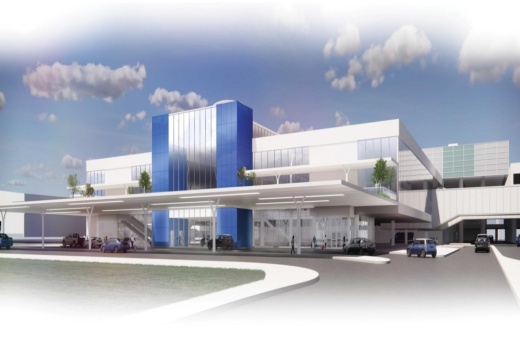But a funding element tied to the agreement will return to council later in November as Controller Chris Brown seeks to address questions about the agreement's financial implications.
The latest
The agreement represented a commitment to the project—a $2.5 billion expansion of the airport's Terminal B—on behalf of the city while Brown's office seeks information related to several financial elements he laid out in a Nov. 9 memo to Mario Diaz, executive director of the Houston Airport System. Brown's concerns included details on the financing, United's credit rating and potential strain on future mayoral administrations, among others.
Houston Mayor Sylvester Turner said council will vote on another agenda item at its Nov. 29 meeting that will have the corresponding funding component.
"It is important for us to send a message to the Uniteds of the world that we want them to do business in our city and make substantial investments in our airport," Turner said at the Nov. 15 meeting.
The backstory
An item on the council's Nov. 8 agenda would have committed $150 million to the Terminal B expansion, but council could not vote on it because Brown declined to sign off beforehand. City officials expect to allocate $624 million to the project in total in three tranches, though each tranche would entail its own separate council vote, Turner said. United would fund the remaining $1.9 billion cost of the project.
The Terminal B expansion, announced in May, is expected to increase capacity, minimize disruptions and enhance the passenger experience with technology, such as dynamic signage and intuitive wayfinding systems, United officials said in a Nov. 15 news release. The project will create more than 3,500 jobs, Turner said.
Other improvements include:
- The construction of 40 new gates
- Adding two new passenger concourses
- Adding amenities such as a sensory room and comfort zones for passengers with disabilities
- Adding two concession hubs with 115,000 square feet of restaurant and retail space
- Expanding the baggage hall and building a new baggage handling system
What they're saying
The agreement with United was unanimously approved by council, and several council members spoke at the Nov. 15 about the importance of the project.
Council members Amy Peck and Sallie Alcorn both said they appreciated the financial scrutiny of the project and the city's involvement. Although the source of Houston's funding will not come from tax revenue—it will come from enterprise funds, including charges paid by airport passengers—Peck emphasized it was still important to take the commitment seriously.
Turner said he agreed with Peck, adding that the city is able to sustain the debt associated with its portion of the project cost. He reiterated the importance of the project and that United was not obligated to stick to Houston.
"In this particular matter, United has about seven hubs across the country," Turner said at the Nov. 15 meeting. "The fact that United is seeking to rebuild Terminal B ... in its entirety is a major deal. They are electing to make this investment in Houston."
What else
United officials expressed commitment to expanding in Houston in a Nov. 15 news release. United has about 400 flights that go through Bush Airport each day, according to the release, and the company has 14,000 employees in Houston.





